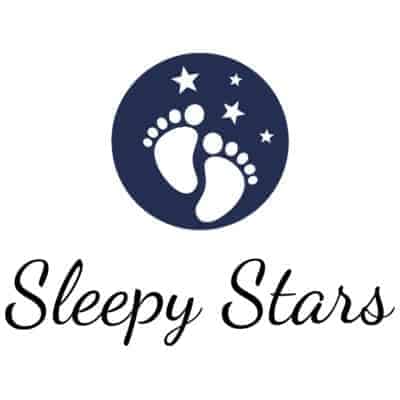
Many of the parents that follow me on social media send me questions that begin with “When is my child ready to …?” I don’t get time to answer all the messages I get so I decided to go through of the most common “When is my child ready to” questions here.
When is my child ready to start feeding and napping on a routine?
Your child is ready when you are. In fact I recommend the younger, the better, as it’s less stressful for all. Being aware of a loose routine from newborn is beneficial and slowly beginning to guide baby towards a routine from six weeks is ideal. For any child moving towards a routine, it can take 7-10 days to feel a rhythm occur. When a baby is 6+ months it can often feel like it gets tougher before it settles down. It depends on the age of the child and how close their existing routine (if one existed) is to the one you are trying to guide them towards. When guiding any child onto a new routine, it’s important to do so slowly. And don’t worry if you have a short, broken or non-existent nap; draw a line under it and keep going, or try again the following day. The advice I give on the webinars will help – click here for more information on the next Sleepy Stars webinars
When is my child ready to drop their naps?
I work off three main naps from an early age. The Morning Nap, The Big Nap and The Cat Nap.
- The Morning Nap usually stays in place until around 13–15 months, although many children who attend day care may have to drop theirs at 12 months.
- The Big Nap stays in place until around 3 years of age, although your child may test and fight bedtime at around the 2 / 2.5 year mark, this is often a sign of overtiredness and testing boundaries rather than a sign that it’s time to drop the Big Nap. Word of warning – if you allow your child to drop this nap and they are not ready, it can be very difficult to bring it back into their body clock and without it your child could become very overtired which leads to troublesome bedtimes, unwanted parties in the middle of the night and very early wake ups.
- The Cat Nap usually drops away around 6–7 months, although some sensitive or very active babies can keep it until 8 months.
Here is a YouTube video I did all about Naps and Nap Transitions that should help you.
When is my child ready to wean on to solids?
There are a couple of signs that you should look for to know that your child is ready to wean on to solids. It’s usually around 6 months but some babies are ready earlier or later than others. Reading your baby is key:
- Your baby has good head control and sits up comfortably propped or slightly reclined.
- Your baby is no longer making it happily from one milk feed to the next.
- Your baby has an interest in food, i.e. your baby sees you eat and show signs of interest. It’s important for your baby to see you eat as this creates a natural interest in solids. Babies with older siblings are often exposed to mealtimes by necessity but it’s a fantastic opportunity to show your baby what’s going on. Remember: Monkey See, Monkey Do! If baby is first baby in the house and they haven’t really seen you eat as you dine when they are sleeping, then all of a sudden one day you sit in front of them and try to put a spoon in their mouth it can be a bit overwhelming for baby!
I have helped to wean 100s of babies on to solids. It’s a fun, exciting, challenging, and messy time. I have sourced some of my favourite items that I use when weaning a baby on to solids; these are items I recommend to parents all of the time. For example, these shallow, soft spoons are great starter spoons. If a spoon is too deep, baby can gag, and if it too hard it can hurt sensitive little teething gums.
When is my child ready to drink water?
Your baby should be hydrated enough from their milk feeds and they do not need additional water until they begin solids. It’s a really good idea to offer small sips of water at meal times to create positive habits. Do not overfill your baby’s tummy with water, their tummy is tiny and it needs room for their milk which has more nutritional value than water.
Here is my favourite starter sippy cup
When is my child ready to brush their teeth?
Well let’s talk about your baby’s gums first. You do not need to begin brushing with a toothbrush or toothpaste until your baby’s teeth begin to erupt, but you should clean your baby’s gums on a daily basis with a soft clean cloth on your finger.
Making the cleaning of your baby’s gums a part of your daily routine right from the start will help ensure that, by the time your baby’s first tooth comes in, you and your baby are both already accustomed to regular mouth cleanings. Furthermore, because every baby teethes a bit differently, it can sometimes be difficult for a parent to tell when their baby’s first tooth is beginning to break through.
As soon as the first tooth appears, introduce gentle toothbrushing twice a day. Use water and a small, soft starter toothbrush.
When is my child ready to night wean?
Most of my Sleepy Stars are night weaned from their one planned dream feed once they are eating solids a few weeks. For various reasons some parents choose to keep one planned dream feed for longer.
In order for your baby to sleep happily and comfortably all night without a feed you must be confident that they are taking in enough milk and solids during the day time.
- Some babies self-wean and decline the night dream feed, and for others we slowly reduce the amount of milk they take at the dream feed down to a “snack feed” 2-3oz or a mini breastfeed for a few nights then we drop it. You cannot and should not drop a full bottle feed or breastfeed abruptly from your baby’s regular nightly intake, their little system will miss it and it can cause distress. And if breastfeeding it can cause discomfort, lowered supply and mastitis for Mum.
- Another sign to look out for is if your baby is not interested in their breakfast feed – this can be a sign that it’s time to night wean.
We get LOTS of parents saying that their baby slept through by 4 months with no night feed … then around 6 months BAM!!!!! Baby was looking for night feeds again … Why? Well as your baby develops they become more active, and they burn off more calories. They can stay awake longer and they are doing lots of kicking and moving during their wake windows. If a planned night feed was kept in place until the solids were introduced then the dream feeds would protect your lovely night’s sleep rather than having a new 5am feed come out of nowhere when you thought you had the nights all sorted.
When is my child ready to start sleep training?
In order to even consider sleep training, you need to ensure the following:
- Your child’s days are complementary to their nights – naps and feeds are going well and at the best times for your child. There is no severe overtiredness, and their body clock is strong.
- You have introduced a source of comfort to your child.
- You have practised the bedtime routine in advance of sleep training – working on positive sleep cues and associations.
- Both parents are ready to do sleep training. If one parent is ready and the other isn’t then it’s not advisable to proceed.
When is my child ready to move from the cot to the toddler bed?
Usually around 3 years old. Here is a video I made that explains transitioning from the cot to the toddler bed.
When is my child ready to start potty training?
Your child can be ready from 18 months; most children are ready around 2 years, and some aren’t ready until 3 years. Often toddlers with older siblings and those who attend day care are ready earlier as they see other children using the potty and they want to join in.
Look for the signs; if you start too early just because you had a long weekend off work and your child is not ready it can actually end up taking a lot longer.
Some signs to look for:
- Pulling at a wet or dirty nappy
- Hiding to pee or poop – behind the sofa / curtain etc
- Showing Interest in others’ use of the potty, or copying their behaviour
- Having a dry diaper for a longer-than-usual time
- Awakening dry from a nap
- Good communication: telling you that they’re about to go, are going or have just gone in their diaper
Here is a video I made with some tips on potty training
I hope that you found this useful and if so please do share with your friends.
Sweet dreams,
Kelly


